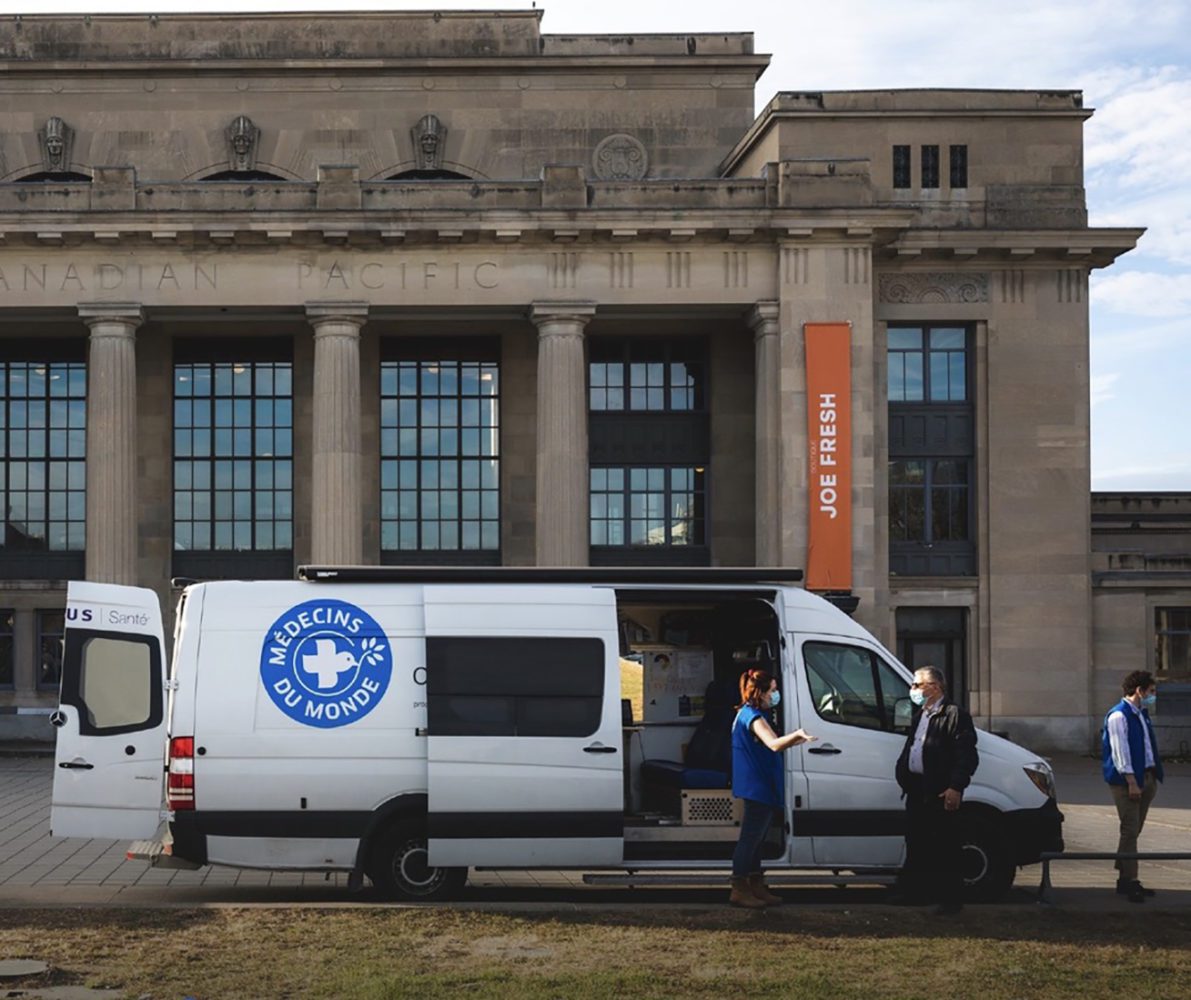During my medical studies, I have had the privilege of working with Montreal’s Médecins du Monde’s mobile clinic alongside a volunteer family physician. On an autumn evening, eager to start my first shift after having completed my training, I arrived early at the downtown intersection of Sherbrooke and Saint-Urbain Sts., where the clinic was to be parked from 6 p.m. to 10 pm for the biweekly Projet Autochtone Quebec clinic.
While waiting for the nurse driving the mobile unit to arrive, a young man walking by struck up a conversation, asking if I was a McGill student. I nodded yes, smiling, figuring it was obvious with my big bag. He asked about my studies, and since he fit the picture of the typical university student – a young, well-versed, twentysomething dressed in a button-down shirt and jeans – I asked if he also was a McGill student. As he began to reply, “Ah no…,” the clinic rolled up. I wished him a good day and went on to greet the nurse.
I introduced myself to the team, including the nurse, the family physician and a general volunteer. I familiarized myself with the main area of the clinic, which was essentially the trunk space of a converted large van, measuring approximately 10 feet by 4 feet.
The clinic travels the streets of Montreal three to five days a week to serve as a haven for a diverse set of vulnerable populations, including various Indigenous populations, homeless families, sex workers and undocumented migrants who know that it will provide free, confidential basic health care in addition to preventive measures such as sterile injection equipment, safe needle disposal and condoms.

As we opened the doors to welcome the patients gathering outside, I noticed that the young man was still there. At first, I thought perhaps he was also volunteering but his facial expression was now serious and he looked straight at me, asking if we could help him. In the examination room, with the physician present, he began to tell us his story: how he recently fled his home country to escape the political system that discriminated against him. How he was diagnosed with a chronic condition a few years ago. How he knew no one in this city or country even. How he did not know where he would sleep that night.
He furtively whispered to us, “I have HIV… But it was rape, right.” The only way he could get medical attention in his country, even on the black market, was to conceal having had consensual homosexual relations. He had already been imprisoned for his homosexuality before escaping. He diligently recited to us his medical records, date of diagnosis, CD4 levels and various names of drugs he had taken verbatim. Impressed by his detailed knowledge of his condition, treatments and lab values, the physician asked, “Are you a science student?” The patient replied, “No, no. This is messing up my life so I can’t help but research it …”
Once the medical examination was over, we encouraged him to seek out refugee status, suggested a nearby shelter and gave him tips on where to get warm meals on different days of the week.
He left us with a reassured smile, thanking us repeatedly. I was surprised by his calmness and his thankfulness in such a challenging situation – neither depressed, anxious nor manic, he seemed to be dealing with his difficult situation impressively.
Honestly, while talking to him I felt like he could have been any of my friends or classmates. But while we cannot directly support every patient we see in every dimension, we can direct them to those resources that can help them get back on their feet.
As I learn more about organizations that Médecins du Monde often refers patients to, such as La Maison Bleue, Head & Hands and Canadian Council for Refugees, among others, I try to keep a mental note so that, if ever one of my future patient needs assistance, I can refer them appropriately. From even my limited time working with vulnerable populations, I have learned the importance of being aware of all the programs and people willing to help.
Our duty as health-care professionals is to inform ourselves of these resources so that whether it be the refugee that arrives from a politically unstable country, the homeless single mom or the troubled youth, they can have some form of a safety net in their time of need.
There is an urgent need to establish a more stable social network in the city. From what I have seen, these are resilient people in difficult situations that are magnified by isolation and lack of proper safety nets. Put in a similar situation, the average person would have a parent, sibling, aunt or friend to turn to for help. Fortunately, this is where community organizations come in.
After this experience, I will not forget those vulnerable moments where, in the midst of the busy city, tucked in the back of a truck, patients who find themselves in deplorable conditions felt safe and listened to, even if for a few minutes.
While I have always been interested in global health and have immersed myself in cultures that contrast with my own, this experience has definitely inspired me to act locally. After all, in a city like Montreal, within a few kilometers there is arguably just as much diversity in practice as travelling across the globe.


The comments section is closed.